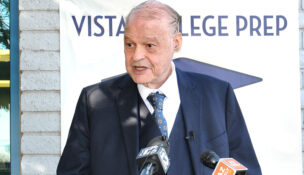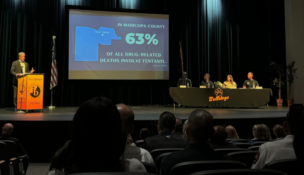Under Prop. 300, college just a dream for many illegal immigrants
Griselda Nevarez, Cronkite News Service//May 3, 2011//[read_meter]
Under Prop. 300, college just a dream for many illegal immigrants
Griselda Nevarez, Cronkite News Service//May 3, 2011//[read_meter]
[caption id="attachment_35624" align="alignleft" width="270" caption="Because she is in the U.S. illegally, Carina Montes, a high school junior with a 4.2 GPA, would have to pay out-of-state tuition to attend a...

















